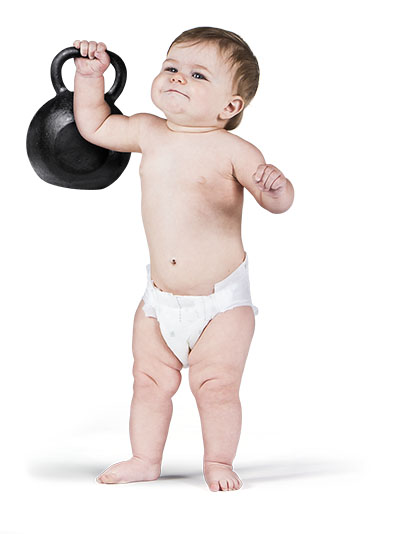When a mother is pregnant, she shares everything with her baby. She shares the good, and unfortunately, she shares the bad that’s there as well. Because of this, it’s crucial that a mother stays up to date on immunizations and gets vaccinated. After all, when a mother gets vaccines, she isn’t just protecting herself, but she’s also giving her baby protection -- as vaccines help protect you and your baby against serious diseases.
During Pregnancy
The Centers for Disease Control and Prevention (CDC) recommends that pregnant women should get a flu shot and a whooping cough vaccine (also called Tdap) during each pregnancy to help protect the mother and her baby. Whooping cough (or pertussis) is a contagious disease spread person to person. And it can be deadly. Up to 20 babies die each year in the United States due to whooping cough. The younger the baby is when she gets whooping cough, the more likely she’ll need to be treated in a hospital.

The CDC recommends that pregnant women receive the whooping cough vaccine during the third trimester (27th through 36th week) of each pregnancy. It is preferred to get the vaccine during the earlier part of this period.
After receiving the whooping cough vaccine, the body will create disease-fighting antibodies and pass them on to the baby before birth. These antibodies provide the baby short-term protection against whooping cough early in life, which is important because she will not start getting her whooping cough vaccines until she is 2 months old. Click HERE, for more information on protecting your baby from whooping cough before birth.
The CDC also recommends getting the flu shot if you are pregnant during flu season. During pregnancy, there are changes in your immune system, increasing the chances of becoming seriously ill from the flu. Catching the flu also increases your chances for problems for a developing baby, including premature labor and delivery.
The CDC advises getting vaccinated by the end of October, if possible. By doing so, this gives protection to mothers and their babies before flu activity increases. For more information on why mothers should receive the flu shot while pregnant, click HERE.
After Pregnancy
Now that your baby is born, she will start to get her own vaccines for protection against diseases (even before she leaves the hospital after birth it is recommended she get the first of an eventual three doses of the vaccine that protects against Hepatitis B).
Your doctor may recommend you receive some vaccines right after giving birth. Postpartum vaccination will help protect you from getting sick and you will pass antibodies to your baby through your breastmilk. Vaccination after pregnancy is especially important if you did not receive certain vaccines before or during your pregnancy.
Immunizations have had a major impact on improving the health of children in the United States. While not all the diseases a baby and child will get vaccinated against are common in the United States, it is important to receive them because outbreaks of vaccine-preventable diseases can and do occur in the U.S.
We provide immunizations for children based on the National Immunization Schedule recommended by the CDC.
1 to 2 Months
- Hepatitis B (2nd dose)
- Diphtheria, tetanus, and whooping cough (pertussis) (DTaP)
- Haemophilus influenza type b (Hib)
- Polio (IPV)
- Pneumococcal (PCV)
- Rotavirus (RV)
4 Months
- Diphtheria, tetanus, and whooping cough (pertussis) (DTaP) (2nd dose)
- Haemophilus influenza type b (Hib) (2nd dose)
- Polio (IPV) (2nd dose)
- Pneumococcal (PCV) (2nd dose)
- Rotavirus (RV) (2nd dose)
6 Months
- Diphtheria, tetanus, and whooping cough (pertussis) (DTaP) (3rd dose)
- Haemophilus influenza type b (Hib)
- Polio (IPV) (3rd dose)
- Pneumococcal (PCV) (3rd dose)
- Rotavirus (RV) (3rd dose)
- Influenza (flu) (every flu season)
12 to 23 Months
- Chickenpox (Varicella)
- Diphtheria, tetanus, and whooping cough (pertussis) (DTaP) (4th dose)
- Haemophilus influenza type b (Hib) (4th dose)
- Measles, mumps, rubella (MMR)
- Pneumococcal (PCV) (4th dose)
- Hepatitis A
- Hepatitis B (3rd dose)
4 to 6 Years
- Diphtheria, tetanus, and whooping cough (pertussis) (DTaP) (5th dose)
- Polio (IPV) (4th dose)
- Measles, mumps, rubella (MMR) (2nd dose)
- Chickenpox (Varicella) (2nd dose)
- Influenza (flu) (every year)
11 to 12 Years
- Meningococcal conjugate vaccine
- HPV (human papillomavirus)
- Diphtheria, tetanus, and whooping cough (pertussis) (DTaP) (6th dose)
- Influenza (flu) (every year)
13 to 18 Years
- Influenza (flu) (every year)
- Meningococcal conjugate vaccine (booster dose)
- Serogroup B meningococcal vaccine



Click here to leave a comment or concern.